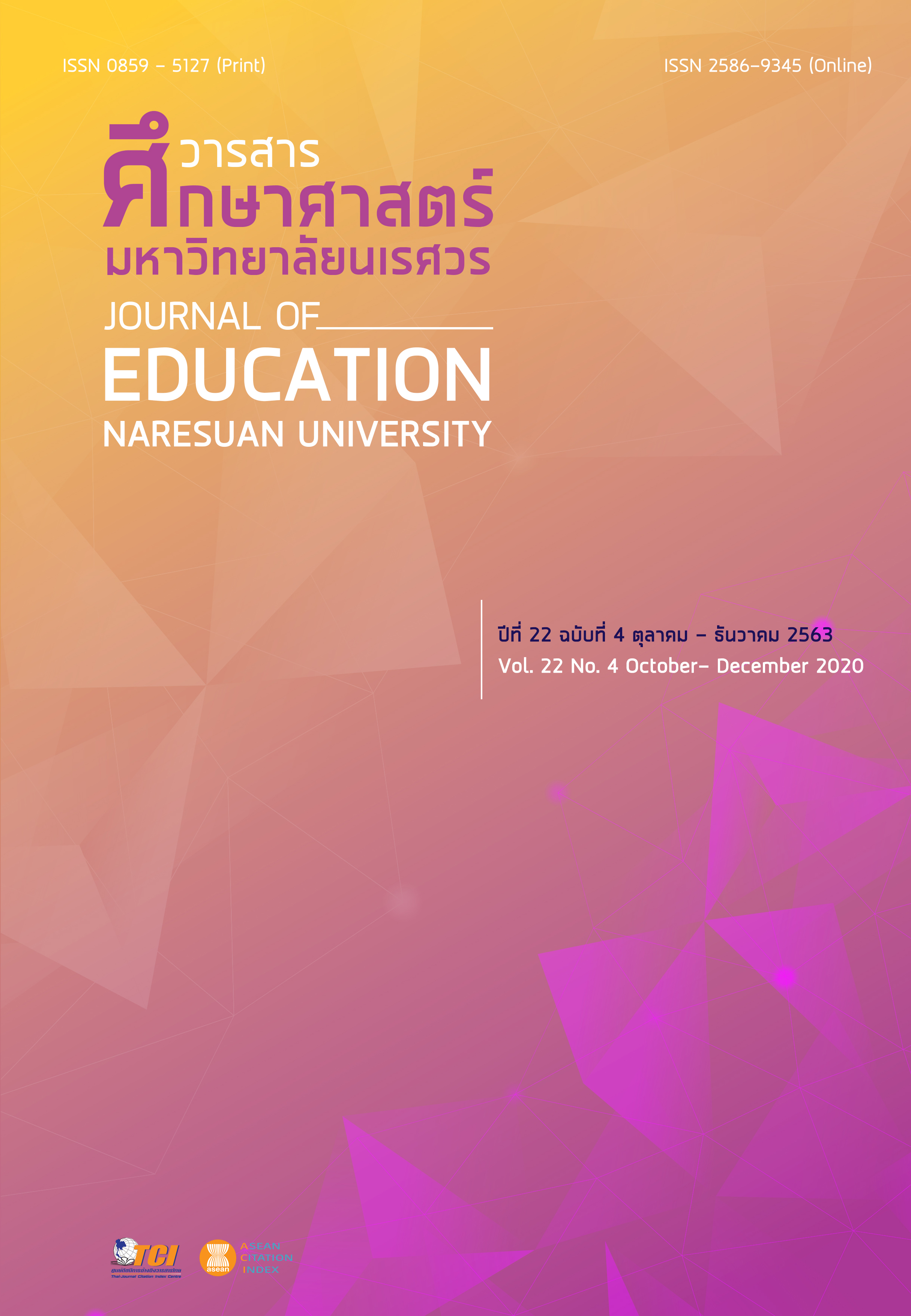LEARNING MANAGEMENT WITH ACTIVE LEARNING IN THE COURSE OF ENGLISH FOR STUDY SKILLS FOR GENERATION Z STUDENTS การจัดการเรียนรู้วิชาภาษาอังกฤษเพื่อทักษะการเรียนกับการเรียนรู้แบบลงมือปฏิบัติ สำหรับผู้เรียนกลุ่มเจเนอเรชัน Z
Main Article Content
Abstract
This research aimed 1) to develop the teaching management process with active learning based on generational concept in the course of English for study skills, 2) to study the comparison of students’ achievement between pretest and posttest with active learning based on generational concept in the course of English for study skills, and 3) to evaluate the students' satisfaction on the use of active learning based on generational concept in the course of English for study skills. The samples were 31 first-year students, majoring in Early Childhood Education, Suan Dusit University, Lampang Center. The research instruments used for gathering data consisted of 1) a questionnaire of students’ requirement for English learning activities, 2) a self-assessment check-list of students’ behaviors, 3) pre-posttest for achievement assessment of students with active learning based on generational concept, and 4) a satisfactory assessment of students with active learning based on generational concept. The research data were analyzed using descriptive statistics with Mean and Percentage. The results of the study were found that the students' requirement for learning activities with active learning were at the high level (= 3.96, SD = 0.50). The three most student’ requirements for active learning activities are: Brainstorming that encouraged the students to think together (
= 4.26, SD = 0.68). Next, the exchange of opinions between the teachers and the students, focusing on the participation of the students (
= 4.23, SD = 0.56) followed by the use of social media as a teaching instructional media for development (
= 4.10, SD = 0.79). In aspect of the self-assessment of students' behaviors, it was found that 100 percent of students searched the information they wanted from Internet sources. Secondly, 96.77 percent of students used various applications on Smartphones. Next, 93.55% of students wanted the teachers to design the activities for their reviewing the lessons, namely activities or games. Likewise, 93.55 of students wanted to participate in the room for sharing their opinions or exchanging the information among classmates and teachers. Also, 93.55 percent of students thought that they had the ability to learn more on their own. From the study of students’ learning achievement before and after using active learning based on generational concept in the course of English for Study Skills, the overall learning achievement before using active learning showed that 40.03 percent of students failed. However, after using active learning based on generational concept, 72.19 percent of students reached the fairly good level. This indicates that the students have a higher average score after using active learning. Therewith, the score of achievement was increased by 32.16%. In terms of students' satisfaction towards English teaching management process with active learning based on generational concept, the results showed that the students were satisfied with the learning management process. The overall score was at a high level (
= 4.02, SD = 0.51).
Article Details
The owner of the article does not copy or violate any of its copyright. If any copyright infringement occurs or prosecution, in any case, the Editorial Board is not involved in all the rights to the owner of the article to be performed.
References
Barcelon, B. (2010). The-life-of-generation-z. Retrieved April 1, 2013, from http://teenlife.blogs.pressdemocrat.com/10220/the-life-of-generation-z/
Chaisaengprateep, N. (2015). the study of learning by doing in tmt423 research methodology in tourism industry. Retrieved from https://www.spu.ac.th/tlc/files/2015/12/nattapong-ch.pdf [in Thai]
Dewey, J. (1963). Experience and education. The Kappa Delta Pi Lecture Series. New York: Macmillan.
Green, C. S., & Bavelier, D. (2003). Action video game modifies visual selective attention. Nature, 423, 534-537.
Ministry of Education. (2010). Core Curriculum for Basic Education (A.D. 2008). Bangkok: Agricultural Cooperative Federation of Thailand. [in Thai]
Oxford, R. L., & Lavine, R. Z. (1992). Teacher-student "style wars" in the language classroom: Research insights and suggestions. ADFL Bulletin, 23(3), 38-45.
Phuworawan, Y. (2016). Instructional management in digital context. Retrieved January 7, 2016, from http://eco.ku.ac.th/2559/01/Effectivelearning&TeachingForKU.pdf [in Thai]
Reid, J. M. (1987). The learning style preferences of ESL students. TESOL Quarterly, 21, 87-111.
Ruangsuwan, C. (2009). Active learning. Retrieved July 25, 2009, from http://www.drchaiyot.com [in Thai]
Siripatthada, Y. (2010). Development of learning behaviors and learning achievement of students in learning marketing principles. Retrieved from http://ssruir.ssru.ac.th/handle/ssruir/933 [in Thai]
Sukvijit, P. B. (2017). Active learning management for teaching and learning community of English learning. Retrieved June 19, 2017, from https://kmtlcspu.com/2017/06/19/activelearningla/ [in Thai]
Thomas, J. O., & Earl, S. W. (1995). Why satisfied customer defect. Harvard Business Review, 73(6), 89-99.


